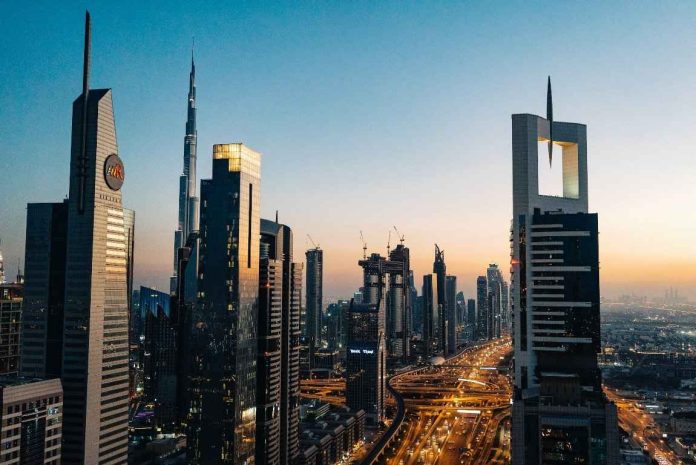One of the United Arab Emirates (UAE) seven Emirates, Ras Al Khaimah, is set to launch a free zone for virtual and digital asset firms as the country’s approach to the industry continues to attract global crypto players.
The UAE plans to attract several firms from this industry, attracting more foreign direct investment and positioning itself as an international tech centre. The free trade zones in the UAE are regions where entrepreneurs have 100% ownership of their businesses and have different tax schemes and regulatory frameworks.
According to a government statement on February 27 2023, RAK Digital Assets Oasis (RAK DAO) will be an innovation-enabling free zone for non-regulated activities and purpose-built in the virtual assets sector. Applications will start being accepted in the second quarter of 2023. According to the chairman of RAK ICC, the operator of the free zone Sheikh Mohammed bin Humaid bin Abdullah Al Qasimi, “They are proud to further the UAE’s position as a primary destination for innovations with the launch of RAK Digital Assets Oasis.”
Qasimi said, “We are building the free zone of the future for companies of the future. As the world’s first free zone solely dedicated to digital and virtual asset companies, we look forward to supporting the ambitions of entrepreneurs worldwide.” Free zones, also known as free-trade, are areas where entrepreneurs have 100% ownership of their organisations and have their tax schemes and regulatory frameworks, except for the UAE’s criminal law.
Table of Contents
Critical roles of free zone
The free zone will be dedicated to virtual and digital assets service providers in emerging technologies, including the metaverse, non-fungible tokens (NFTs), virtual asset wallets, utility tokens, decentralised applications (DApps), decentralised autonomous organisations (DAOs), blockchain and other Web3-related businesses.
The United Arab Emirates (UAE) has been investing heavily in implementing policy reforms and developing its infrastructure to attract more entrepreneurs and businesses to the country with efforts to grow its non-oil sector. While composing the new free zone’s steps, a Dubai-based crypto lawyer Irina Heaver said, “RAK DAO will start with non-financial activities first, then may introduce the financial activities at a later stage.” Heaver added,”[Entrepreneurs] won’t be able to launch a crypto exchange, which is an ESCA-regulated financial activity.”
In a report, the Dubai Chamber of Digital Economy said that they expect the national digital economy to grow to more than $140 billion in 2031, while currently, they are up from nearly $38 billion. One of the UAE’s leading financial regulators is the Securities and Commodities Authority (SCA). The country’s latest federal-level virtual assets law states that the SCA has authority throughout the Emirates; besides the financial free zones, the Dubai International Financial Centre (DIFC), Abu Dhabi Global Market (ADGM) and others have their financial regulators.
The UAE’s crypto adoption
Regulatory agencies in the country have been acquiring laws to supervise and streamline the digital asset industry. The UAE has illustrated itself as a forward-thinking hub for crypto companies eyeing jurisdictions with friendlier laws. In March 2022, insiders at Bitai Method Official mentioned that Dubai adopted the Dubai Virtual Asset Regulation Law, which plans to build a progressive legal framework to protect investors and provide global standards for virtual asset industry governance that promotes responsible business growth in the emirate.
The UAE also formed the Virtual Asset Regulatory Authority (VARA) as an independent body to manage the sector throughout the country, as well as special development zones and free zones, except the Dubai International Financial Centre, to protect investors and grant standards for the virtual asset industry.
In September 2022, the Abu Dhabi Global Market, the regulator of Abu Dhabi’s financial hub, and the Financial Services Regulatory Authority published a guiding principle on its approach to regulating and overseeing virtual asset regulation to outline its expectations for the service providers and asset class in the sector. However, the UAE Central Bank does not acknowledge cryptocurrencies as legal tender.
Chief RAK ICC and Digital Assets Oasis executive, Sameer Al Ansari, said,” The UAE’s established reputation as an innovation hub, the free zone will deliver a unique offering to global entrepreneurs.” Ansari added, “We look forward to welcoming the world’s brightest Web3 minds with their most disruptive ideas that uncover new approaches to creating a better future. We are committed to empowering the next generation of global entrepreneurial talent to build transformative solutions and create impact while shaping the future of businesses and economies.”
In July 2022, Minister of State for Foreign Trade Dr Thani Al Zeyoudi said, “Under the first phase of the NextGenFDI initiative, the country aims to attract 300 digital companies within six months to a year.” RAK Digital Assets Oasis intends to support firms with innovation-enabling adoption frameworks, professional services, hybrid workspaces, advisory, accelerators and incubators, sandboxes and access to funding.
According to the Ministry of Economy, the UAE provides more than 40 multidisciplinary free zones in which emigrants and foreign investors can have full ownership of firms. It also incentivises digital firms to set up operations in the country.




